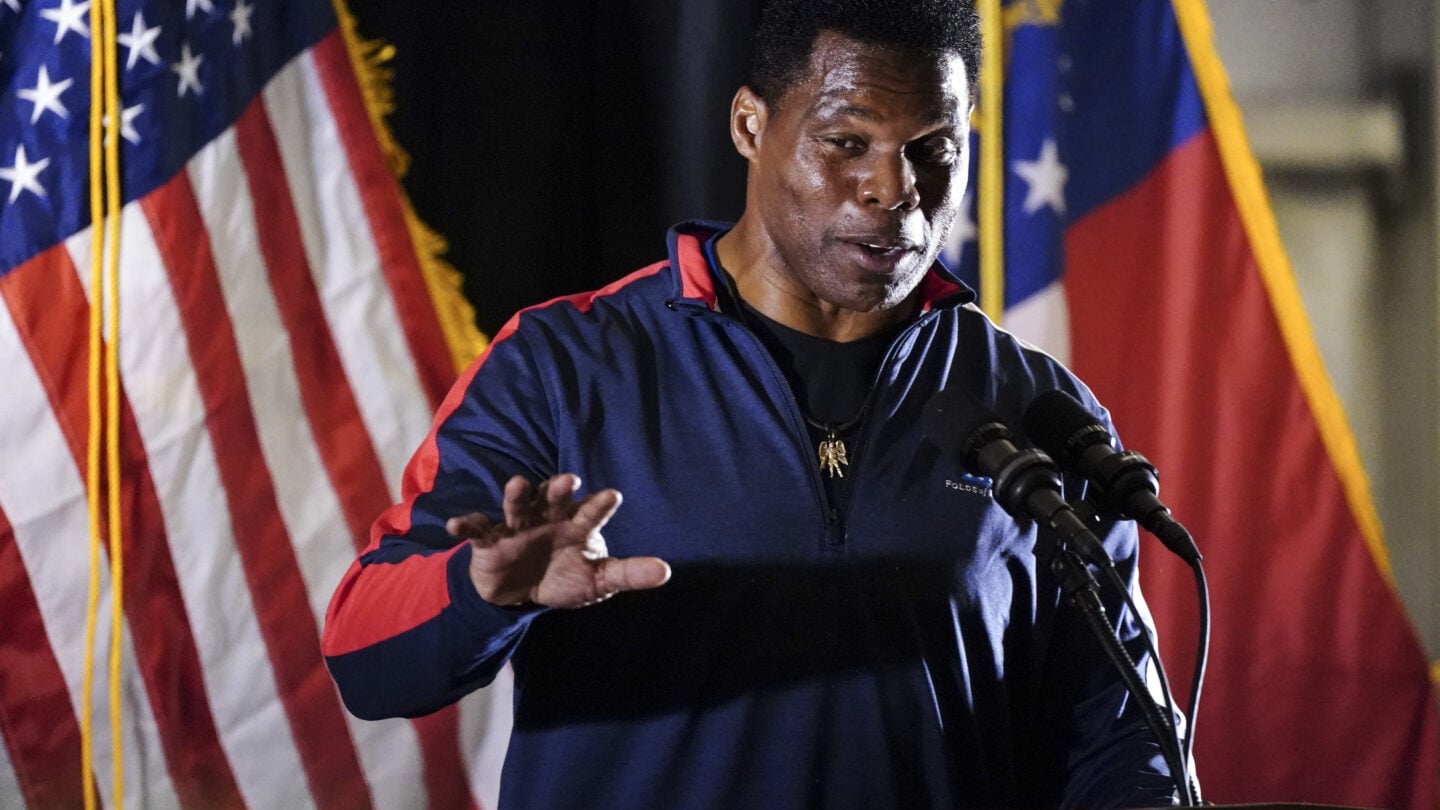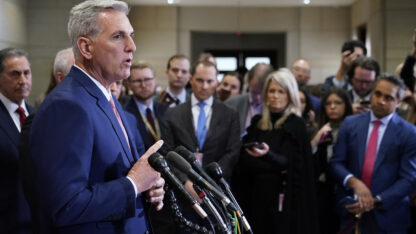This coverage is made possible through a partnership with WABE and Grist, a nonprofit, independent media organization dedicated to telling stories of climate solutions and a just future.
Georgia Republican Senate candidate Herschel Walker has raised eyebrows again on the campaign trail with his latest comments on the environment.
Walker, who is in a runoff race against Democratic incumbent Raphael Warnock, told supporters at a rally this week that America isn’t “ready for the green agenda.”
“We’re not prepared; we’re not ready right now,” he said. “What we need to do is keep having those gas-guzzling cars. We got the good emissions under those cars.”
In the United States, transportation — including cars — is the leading source of greenhouse gas emissions that cause climate change.
Video of Walker’s speech, posted to Twitter, drew thousands of comments expressing disdain and pointing out the investments in electric vehicle manufacturing that Georgia has attracted in the last year.
“Herschel Walker calls for more gas-guzzling cars, even as his alma mater builds out a big EV program!” tweeted environmentalist Bill McKibben, along with a link to the University of Georgia’s electric mobility initiative, which aims to foster research into electric cars, trucks, buses, and other vehicles.
The reaction is indicative of the stakes of the Georgia runoff. While Democrats have won 50 Senate seats in the midterms so far, reelecting Warnock would ensure they have a majority even without Vice President Kamala Harris’s tiebreaker vote, with implications for everything from climate legislation to federal nominee approval, including for the Supreme Court.
Walker has spoken out against the Inflation Reduction Act, or IRA, and its investments in reducing emissions. After President Biden signed it into law, Walker criticized it, asking, “don’t we have enough trees around here?”
He has said repeatedly that Georgia’s “good air decides to float over” to China, to be replaced by China’s “bad air” and that “we got to clean that back up.” This concept has no basis in science.
Pollution can travel across long distances, “but air pollution doesn’t displace clean air,” Steven Davis, a University of California, Irvine professor of Earth system science, told FactCheck.org earlier this year. “It’s more like pee in a swimming pool: It dissipates and becomes less concentrated over dimensions of time and space, but no one is better off because of it.”
The United States is the second largest global emitter of carbon dioxide, after China.
Walker’s campaign website calls for making America “energy independent” but offers no detail or explanation.
The former NFL and University of Georgia running back was encouraged to run for Senate by former President Donald Trump. After a campaign plagued by numerous scandals, Walker finished less than 36,000 votes behind his Democratic opponent, Warnock. Neither candidate garnered 50% of the vote, which automatically triggered a runoff.
Warnock has called for action on climate change, which he calls a “moral issue.” He touted his efforts last month at an event celebrating the Hyundai electric vehicle plant planned near Savannah.
“I’ve also put forward a lot of legislation focused on creating a green energy future, everything from electric vehicles to electric batteries being manufactured in the state, to investing in solar manufacturing,” he told reporters.
Warnock stressed the economic potential of transitioning to electric vehicles and renewable energy like solar. He supported legislation to promote green manufacturing in Georgia, including introducing a bill to make the Hyundai EVs manufactured at the Georgia plant eligible for the IRA’s tax incentives.
The Hyundai EV plant, a $5.5 billion investment that promises more than 8,000 jobs, is one of several projects Georgia officials have worked to attract to the state in electric vehicle, EV battery, and solar cell manufacturing, despite having no emissions reduction targets at the state level.
Georgia’s runoff election for U.S. Senate is on Dec. 6, with early voting starting Nov. 28.









